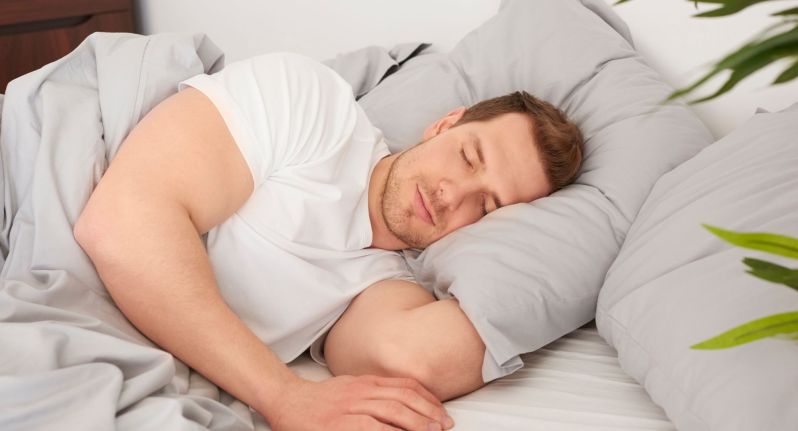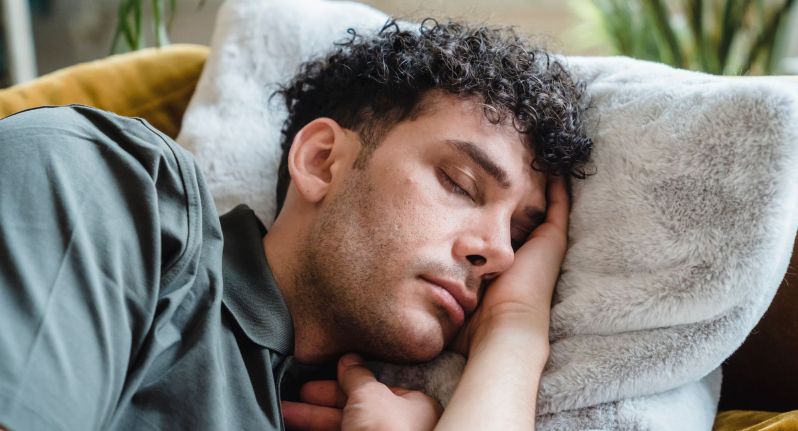
Your sleep hygiene habits are just as important as your daily hygiene habits, like brushing your teeth or showering. Improving your sleep hygiene means looking at your sleep habits, such as timing, environment, etc. Several factors can impact the quality of your sleep, such as the amount of light in the room or if you’ve consumed alcohol before bed. Yet, one of the most important factors – the food you consume – is often overlooked. Below, we’ll dive into how biohacking your sleep starts with consuming a well-rounded diet.

Tools for tracking nutrition and sleep
If you’re wondering how to improve sleep quality, start by examining your diet. Most of us who do not track our food are not quite sure what ratio of fat, carbohydrates, and protein we consume on a daily basis. Finding the right balance of these macronutrients within healthy food choices greatly impacts sleep quality.
Tracking your foods through a food and sleep diary is one way to accurately measure your nutrition and take the guesswork out of your macro and micronutrient status. Off the top of your head, you’re unlikely to know how much of certain nutrients you get each day – which could mean you’re way off from reaching your goals. There are many food diary and macro tracking apps, such as MyFitnessPal, that can make logging your food easier.
Sleep tracking devices such as the Apple Watch and Oura Ring can also help you measure important aspects of your sleep quality, like REM sleep. Keep in mind that these devices are not perfect, but they can provide insightful data to help you improve your overall sleep quality.

Nutritional tests for biohacking
Biohacking your sleep can be easier when you have access to helpful data, such as macro and micronutrient levels. Many at-home lab tests are now available to help you gain more insight into what’s happening inside your body. Nutritional tests for biohacking sleep can provide information on essential levels of vitamins and minerals in your blood, such as zinc and magnesium tests. Using these tests allows you to identify potential nutrient deficiencies that could impact the quality of your sleep.
The data you collect via at-home testing can make it easier to tweak your diet appropriately. Of course, it’s always a good idea to check with a healthcare professional to determine the best daily macronutrient and micronutrient requirements for your personal needs. Nutritional requirements differ for each person, depending on a variety of factors such as age, gender, weight, and health condition(s).

Foods that worsen sleep quality
This may seem obvious, but avoiding foods that disturb your sleep or lower its quality is an important component of sleep hygiene.
Alcohol
Perhaps one of the most obvious “no-nos” is alcohol. According to the Sleep Foundation, consuming even low amounts of alcohol can impair your sleep quality by 9.3%, with large amounts of alcohol impacting sleep quality up to 39.2%. Drinking alcohol interferes with your body’s REM sleep stage, which is important for forming memories and learning.
Fatty or processed foods
Consuming too many high-fat or processed foods may also impair your sleep quality. This is because a heavy, fatty meal requires more digestion and could cause you to wake up in the middle of the night. One study found that consuming too much saturated fat resulted in lighter, less restorative sleep quality. Consuming whole grains, fruits, vegetables, and lean proteins are healthier choices to help you reach your macronutrient and micronutrient goals.
Caffeine
Have you ever heard the “no coffee after noon” rule? This concept stems from the idea that caffeine can impair our ability to fall asleep or stay asleep. Caffeine stimulates the central nervous system and acts as a stimulant to give you more energy. In turn, consuming too much caffeine in the afternoon or evening could leave you with poor-quality sleep.

Healthy food for better sleep
In addition to avoiding foods that negatively impact your sleep, biohacking your sleep can also mean incorporating a few foods that have been shown to improve sleep quality.
Foods with zinc and magnesium
Healthy foods that are high in zinc, such as lean grass-fed beef or chickpeas, may be worthwhile to add to your diet. Having enough zinc in our diet is important for staying asleep throughout the night, acting as a calming agent. In addition, eating foods high in magnesium, such as pumpkin seeds, can help to relax the central nervous system and prepare you to relax and rest.
Salmon
Some studies suggest that consuming salmon can help support improved sleep due to the high amounts of tryptophan. Tryptophan is an amino acid that is naturally occurring in foods like salmon and can produce a calming effect that has been linked to better sleep. Nuts and seeds are also high in tryptophan.

How to improve sleep quality
Overall, improving sleep quality takes efforts from several angles. Whether you’re looking for the answer on how to fall asleep faster or simply want to ensure you’re getting restful sleep, start by taking a look at your diet. Avoiding foods that worsen sleep and tracking your macro and micronutrients can help you optimize your nutrition for higher-quality sleep. Combine these biohacking techniques with other good sleep hygiene habits for the best results, such as limiting screen time before bed.



